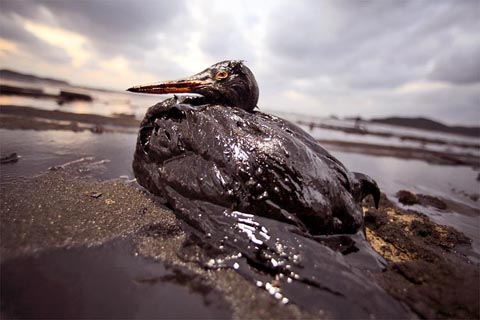
Just when you thought things were starting to look up in terms of the oil spill in the South another disaster strikes. That may sound a little dramatic as we don’t yet know the reach of this spill, but it’s really not too far off the mark. It is highly unlikely that this spill will ever reach the catastrophic proportions that the April 20th Deepwater Horizon spill reached, and a Jefferson Parish Councilman has already said he believes that the spill can be stopped today. However, the fact that there is another spill so soon after that one and so close to the origin of that spill is disturbing.
It was reported by the AP that a tugboat ran into a wellhead in a bay by Mud Lake. Oil is now being emitted into the water and is visible above the surface. This occurred to the north of a bay where officials have been working steadily to contain the spilling oil from the BP tragedy.
This area has been described as “ecologically sensitive” and although no one is sure yet how much oil is being ejected into the water, there are reports of a visible sheen in the lake.
Oil is such a crucial resource to the United States and we have lost so much of this resource within our own borders. We already didn’t like being so dependent on foreign oil, and it seems like these constant spills keep pushing us back to the oil in the Middle East.
The way I see it one of two things needs to happen here. Either we need to have more competent rig workers and boat captains and there needs to be a higher emphasis placed on personal responsibility, or we can’t keep drilling deep-sea oil wells. If we aren’t capable of drilling out in the water without causing environmentally detrimental spills then we can’t keep drilling there.
We really need more stringent regulations on our oilrigs and more constant monitoring that these safety regulations are enforced. People keep saying that it was under President Bush that regulations were slackened. But the way I see it is that he has been out of office for a year and a half and perhaps Obama should have paid closer attention to these issues. After all it has been under Obama that the worst spill in history occurred. But now is the time for increased monitoring to make sure another spill doesn’t occur. It’s too late to go back and prevent the ones that have been, now it’s time to look to the future and the preservation of our environment.

